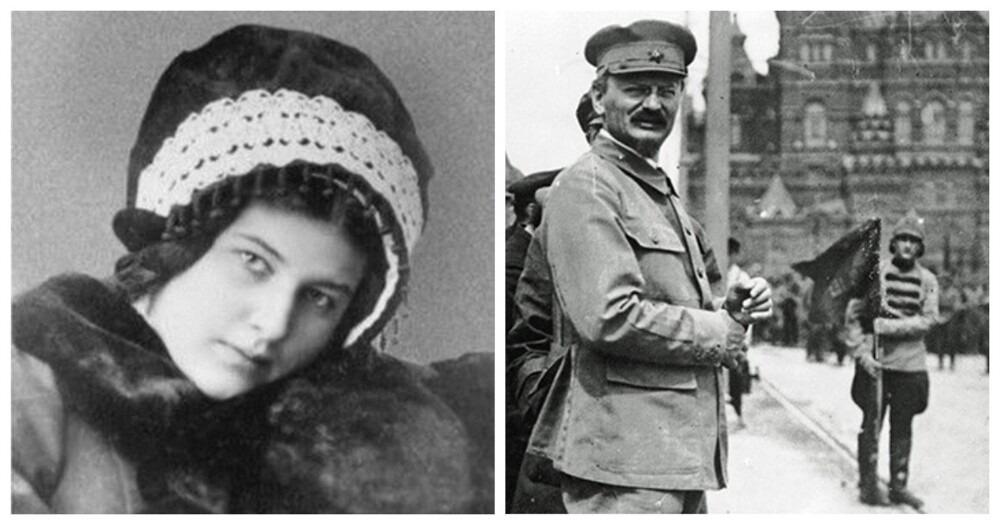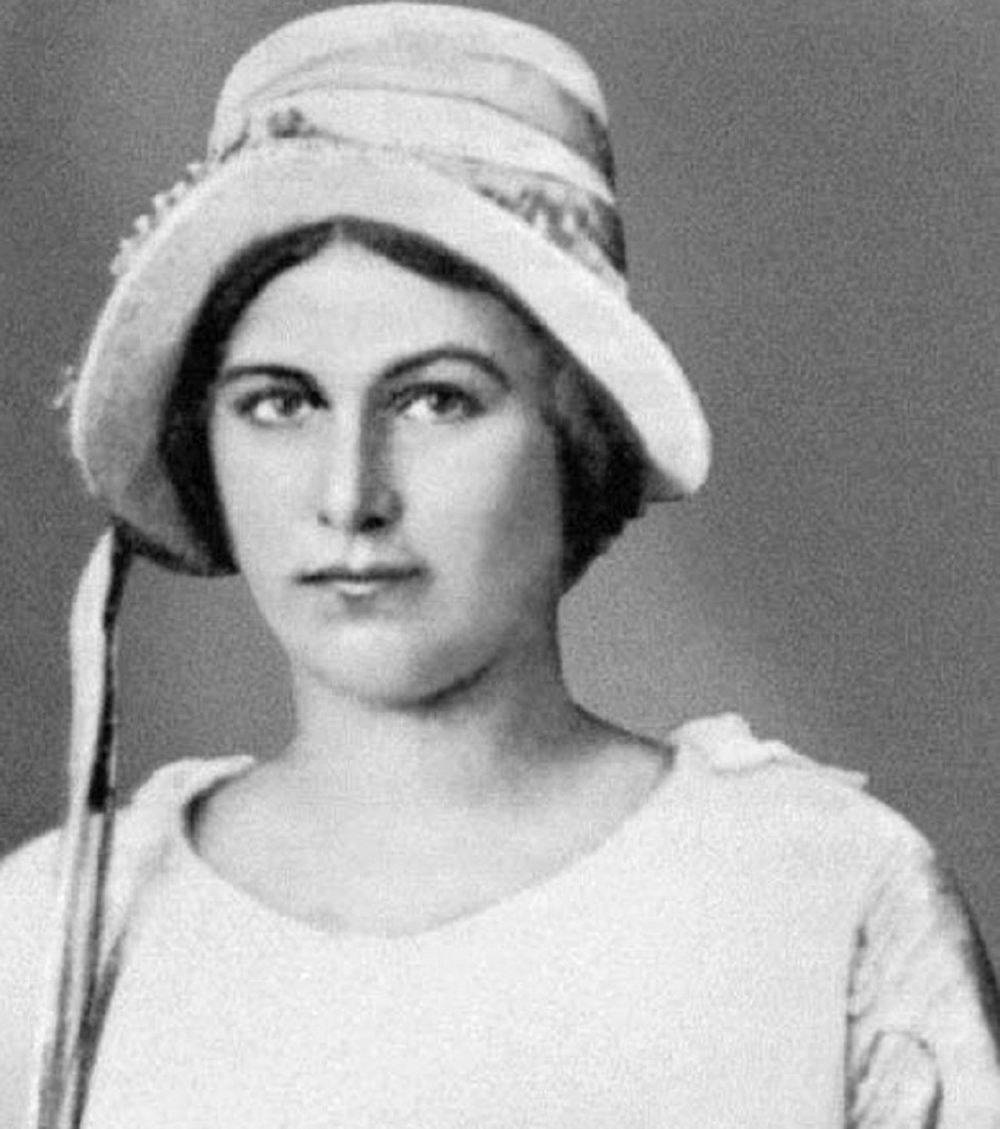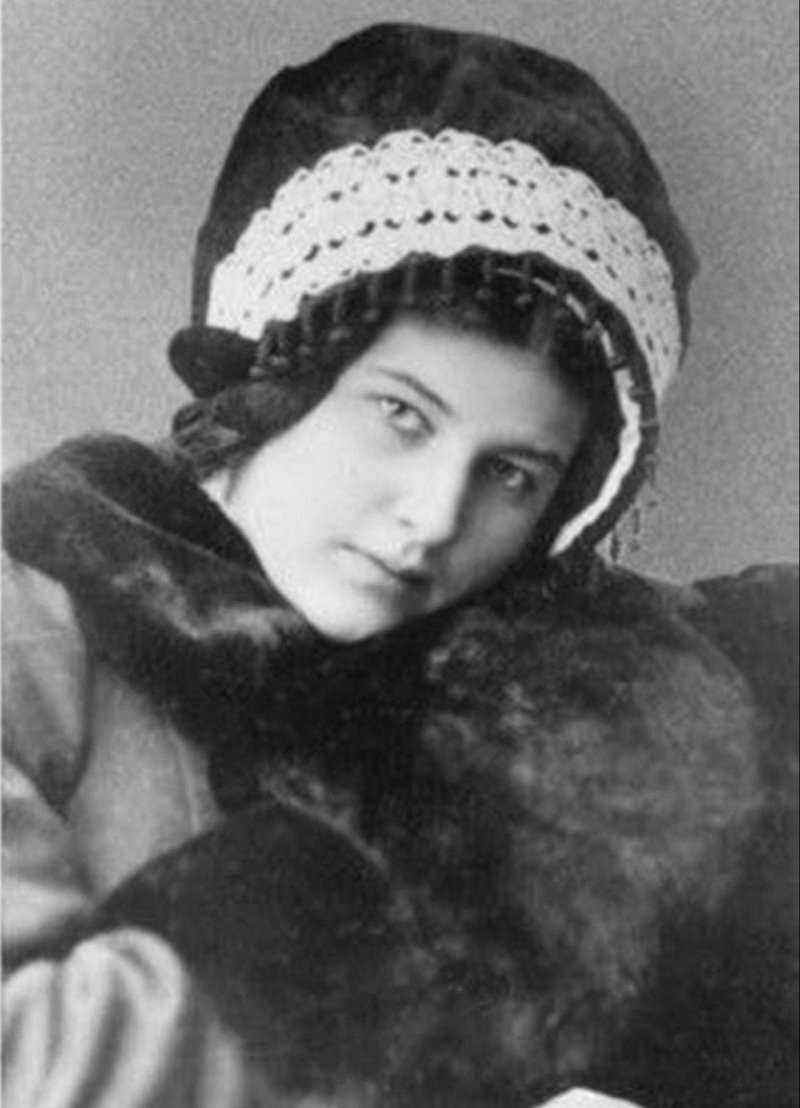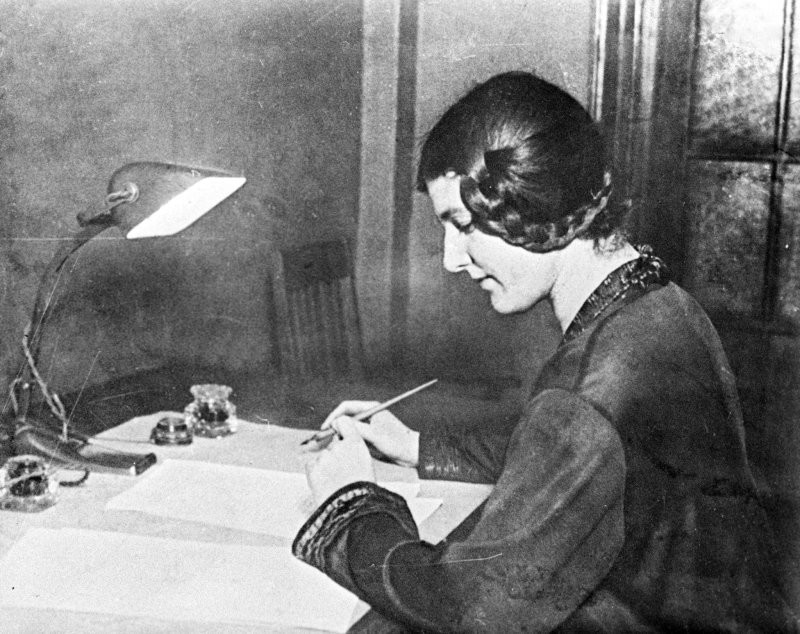“Valkyrie”, “Lock in the face” and other nicknames and achievements of the ardent revolutionary Larisa Reisner (4 photos)
Coming from a professorial family, she left a comfortable life and spun novels with the most prominent figures of the Bolshevik movement. 
Reisner was beautiful and smart. Wrote good poetry and loved read them in poetry parlors. Early indulged in sensual affairs and met with the poet Nikolai Gumilyov, he called her "Leri". 
Larisa Reisner
When the revolution broke out, Leri did not stand aside: changed expensive outfits for a leather jacket, put a revolver in her belt and became Commissar in the Baltic Fleet. Why all of a sudden such a change and such important purpose?
Perhaps the matter is in the talents of the revolutionary fury, or maybe in that by that time she had become the mistress of Leon Trotsky and traveled with them across the country on an armored train. And then she began to meet and live with Fedor Raskolnikov - Commissar of the Naval General Staff.
Then Larisa got sonorous nicknames - for example, "A castle in the face." The fact is that Raskolnikov was sometimes called simply: maritime commissioner. Reisner was his woman, so as a joke she was called his deputy. So her position was abbreviated as "castle in the face". 
But there were also more poetic nicknames: “The Seagull of the Revolution”, "Valkyrie" - as the old Bolsheviks sometimes called her, they have it enjoyed a certain weight and respect. What can not be said about wealthy residents of Petrograd - as soon as Reisner came into force found influential men, then immediately began to shake the former rich, take away their valuables and expel the moneybags from their apartments.
But this did not last long. In 1921 Larisa married Fedor Raskolnikov (by that time he was appointed ambassador to Afghanistan) and drove off with him to Kabul. But even with him she did not settle down, soon the lady left her husband and went to Germany with Karl Radek, a journalist, member of Central Committee, the ideologist of the society "Down with shame!" In Germany, Reisner got a job Izvestia correspondent and described the uprising in Hamburg and other significant events. 
It is not known how her fate would have developed further. Larisa was obstinate, domineering and did not climb into her pocket for a word - so the future was very foggy. But we will never know about this - in 1926 Reisner caught typhus, fell ill, and soon died.






























